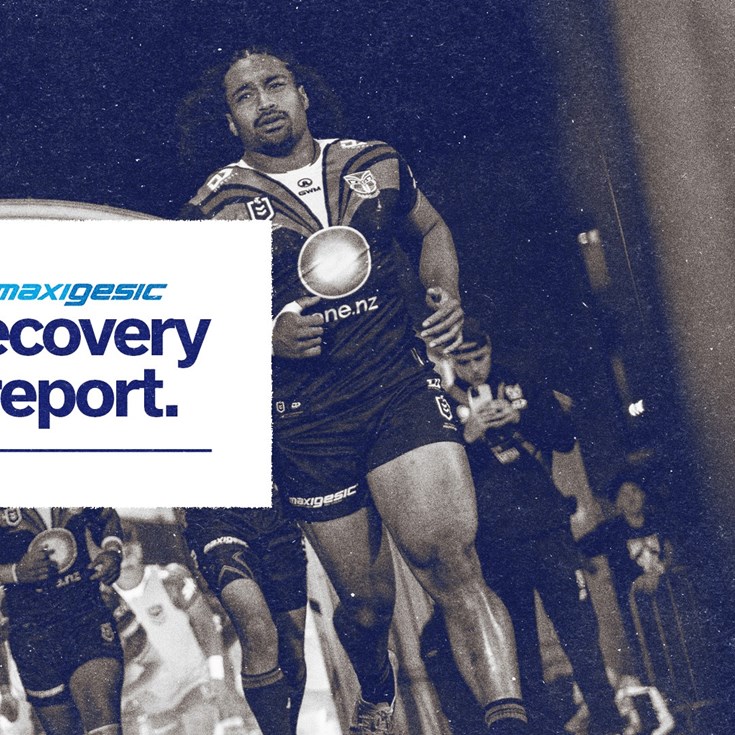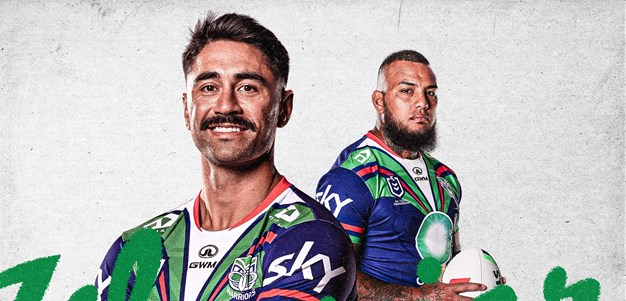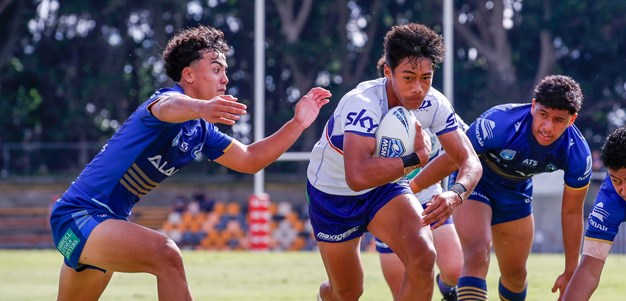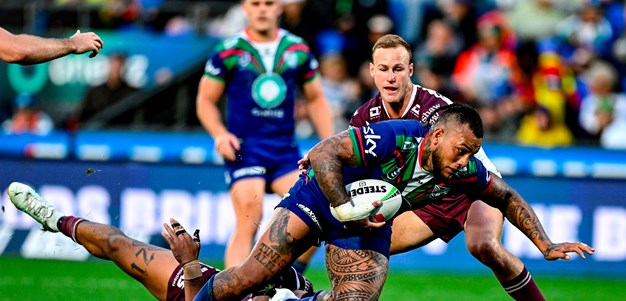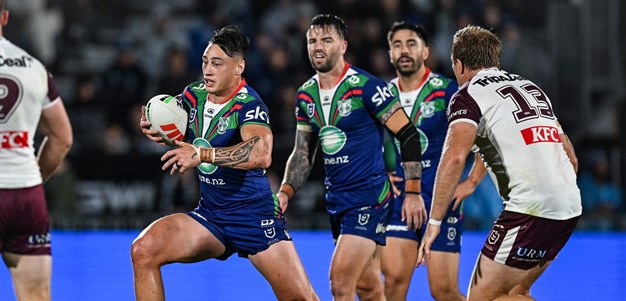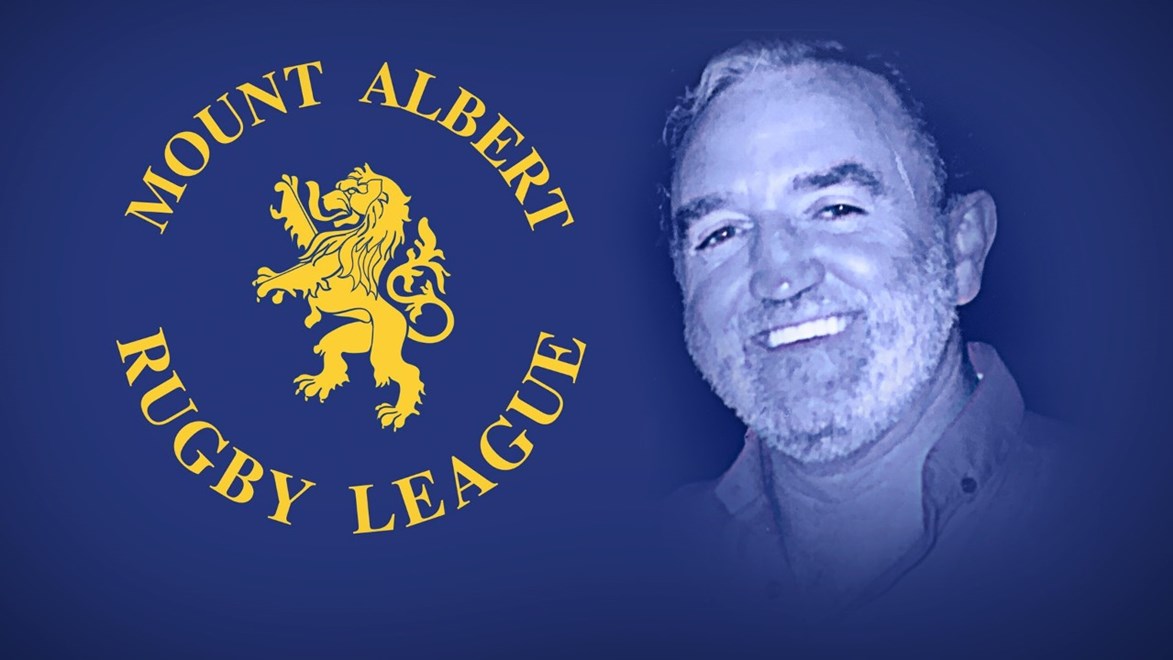

Mount Albert rugby league identity Rocky Cavanagh, one of the Vodafone Warriors’ forefathers, has passed away, aged 76.
A Mount Albert Rugby League Club stalwart, Cavanagh was an original campaigner for a New Zealand team in the Australian competition.
He was one of three Mount Albert club members – the others being then-president Brian Elliston and John Ackland – who headed an audacious bid for an Auckland-based team to be added to the Winfield Cup.
Kiwi coach Graham Lowe had first raised the idea in a newspaper column in 1983 but six years later Elliston, Cavanagh and Ackland took it to the next level.
“A New Breeding Rising”, which catalogued the creation of the original Auckland Warriors, highlights the Mount Albert trio’s efforts to set the wheels in motion. This is an excerpt from the book:
In early 1989, Mount Albert president Brian Elliston worked with club members Rocky Cavanagh and John Ackland on a scheme which can now be credited with changing the face of New Zealand rugby league for ever. But they didn’t observe protocol by going through the so-called proper channels.
“We didn’t go to the New Zealand or Auckland Rugby Leagues,” recalled Elliston. “We just wrote directly to Ken Arthurson (chairman of both the Australian and New South Wales Rugby Leagues). It was a shot in the dark, and Ken Arthurson told us we’d gone in through the back door. But we made it fairly clear to him that, if we’d gone in through the front door, it would probably never have kicked off.”
A New Zealand businessman had actually been motivated to explore the issue in some depth in 1988. He commissioned former Auckland rugby union representative Kevin Ramsey, well qualified in the advertising world, and Peter Dalton to do a feasibility study on sponsoring a team in the Sydney premiership. The encouragement to go even that far had been provided by the NSWRL’s decision to introduce Brisbane, Newcastle and Gold Coast to their competition. If them, why not a New Zealand team next?
Well, that was the rationale, although it wasn’t received at all keenly by the New Zealand Rugby League. And this wouldn’t be the first time the national body was less than positive on the issue.
After giving Ramsey and Dalton a hearing, the NZRL’s executive director Michael Knowles told the Sunday Star: “I made it quite clear to these gentlemen that I was very negative about the idea. I just don’t believe it would be good for New Zealand football as whole, and that has to be the ultimate aim of the NZRL.”
Knowles wasn’t a lone voice. The NZRL’s directors were similarly indifferent; so, too, was NSWRL general manager John Quayle, who claimed then that an Auckland team wouldn’t necessarily improve the competition. “There is no way we’re going to throw established clubs aside just to let a team from New Zealand in,” he said.
The Mt Albert delegation didn’t find the reaction quite that grim from the NSWRL in 1989. At least they were afforded a reply as well as a list of criteria prospective teams had to meet to play in the competition.
“But when we first put it to the NZRL they showed a lot of disapproval,” said Brian Elliston. “We just made it clear we wanted to see a New Zealand team in the competition. A lot people thought it was Mt Albert which was trying to have a side put in. It wasn’t.
“I think what we did probably got some backs up on the NZRL but, the way we saw it, league in New Zealand was just going way downhill. That World Cup final at Eden Park (in 1988) was almost the end. If we’d won that game it would have been so different, but it was a disaster. We were going backwards.”
More than interested in developments from the outset was the Auckland Rugby League, and particularly Peter McLeod, who by the end of that year, would become the ARL’s chairman. In time, he would also become the man most responsible for transforming Mt Albert’s unsophisticated concept into a bid the NSWRL couldn’t refuse.
“Mt Albert deserve a tremendous amount of credit for airing the issue,” he said. “Their proposal was rather superficial but, most importantly, it alerted everyone to the possibility.
“It was still a two-edged sword – it could be our greatest opportunity if we were admitted; if we missed out, it could spell the death knell of spectator interest in the local league. But, on balance, there were enough factors, to make us feel optimistic about it.”
The ARL disguised that optimistic view from the Mt Albert consortium when the various parties first discussed the matter together. After an initial meeting between Auckland and New Zealand officials, another was to follow called by the NZRL, this time with Mt Albert’s three musketeers in attendance.
“Rocky (Cavanagh) and others were probably really surprised that within a few months we were champing at the bit because, at that meeting, we played the devil’s advocate and said to them: ‘Tell us why.’ But, in truth, we knew the environment had changed a lot.”
It would prove to be the springboard for the successful bid to have the Auckland Warriors admitted to the Winfield Cup in 1995. It was a long process but no one should ever forget what the Mount Albert Rugby League Club did to make it happen, with Cavanagh an integral contributor along with Elliston and Ackland.
Cavanagh would go on to be a Vodafone Warriors member. Over a long stretch of years, he barely missed travelling to Sydney for the NRL grand final and certainly relished the opportunity to be there when the Vodafone Warriors first made the season decider in 2002.
A man of strong convictions and opinions, he stood for National against Labour’s Helen Clark in the Mount Albert electorate in the 1984 general election.
Rocky Cavanagh will be farewell at St Joseph's Catholic Church in Grey Lynn at 11.00am tomorrow (September 15).
- Cavanagh's passing comes less than two years after the death of Peter McLeod, the Vodafone Warriors' founding father. Read more here.
